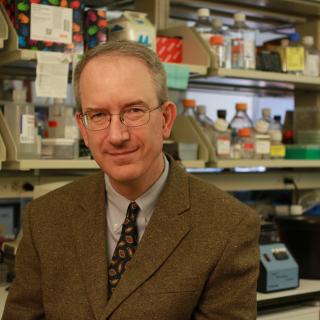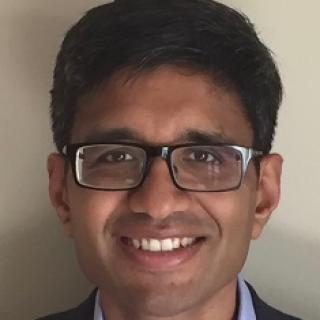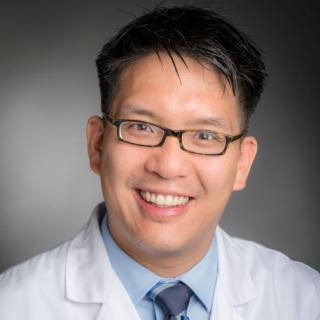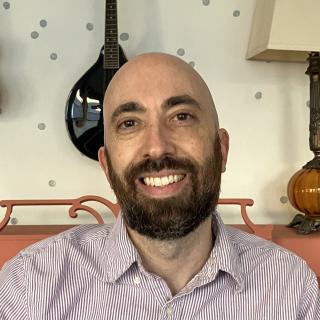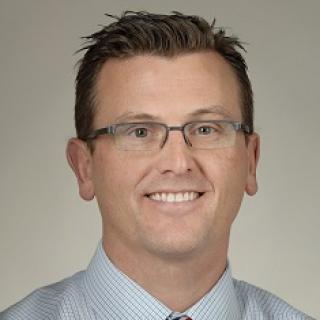Lymphoid Malignancies Branch
Information for Patients
Learn more about our clinical trials and the highly specialized care teams that lead them.
Lymphoid Malignancies Branch
About
Since its inception in 1956, the Lymphoid Malignancies Branch (formerly the Metabolism Branch) has been an exemplar of translational research. Its investigators combine basic research, preclinical investigation, and drug development with innovative, therapeutic clinical trials that have as their scientific basis fundamental research performed in the Branch. Primary interests of the Branch concern the identification of abnormalities to the regulation of the immune response and the definition of molecular disorders that underlie lymphoid malignancies. The fundamental laboratory-based studies concern molecular biology of human lymphoid malignancies (Louis Staudt); the Staudt Laboratory uses genomic approaches to establish a molecular diagnosis of lymphoid malignancies and to discover new targets for therapy of these diseases.
A mainstay of the Laboratory is gene-expression profiling, which provides a foundation to understand the molecular pathogenesis of these cancers and their response to therapy. New molecular subtypes of lymphoma defined by gene-expression profiling emerge as distinct disease entities that differ in oncogenic mechanisms, as defined by other genomic technologies such as array-based comparative genomic hybridization and cancer gene resequencing. An ongoing interest is in RNA interference (RNAi)-based genetic screens for new therapeutic targets in lymphoma and multiple myeloma. A recurrent theme that emerges from these unbiased genetic approaches is that lymphoid malignancies co-opt signaling proteins and transcription factors that are used in normal B-cell differentiation and activation. These lymphoid restricted pathways provide opportunities for the development of targeted therapies for lymphoid cancers.
A major specific research goal of the Waldmann Laboratory immunological research program is to define the pivotal roles played by IL-2 and IL-15 (cytokine/cytokine receptors and signaling pathways) in the life and death of normal and neoplastic lymphocytes. Furthermore we clinically translate our basic discoveries of new cytokines (e.g., IL-15) and new cytokine receptors (e.g., IL-2R alpha and IL-2/IL-15R beta) and their signaling pathways through the use of IL-15 in immunotherapy and monoclonal antibodies to receptors (anti-IL-2R alpha and anti-IL-2/IL-15R beta) in the treatment of autoimmune diseases and lymphoid malignancies.
Our group also focuses on T-cell malignancies with special emphasis on human T-cell lymphotropic virus 1 (HTLV-1)-associated adult T-cell leukemia (ATL) (Kevin Conlon, Thomas Waldmann). A major goal of the Branch is to translate fundamental biologic insights into novel treatment of human B and T-cell lymphoid malignancies. The major clinical research emphasis is the development of the most effective therapeutic strategies in molecular subtypes of aggressive B-cell lymphomas. The dose-adjusted EPOCH-R platform has demonstrated excellent long-term results in Burkitt lymphoma as well as subsets of diffuse large B-cell lymphoma (DLBCL) such as primary mediastinal B-cell lymphoma (PMBL) and GCB DLBCL.
Collaboration with Louis Staudt, Wyndham Wilson and colleagues (Mark Roschewski) has led to the clinical development of novel agents that target pathways of ABC DLBCL such as the Bruton's tyrosine kinase inhibitor, ibrutinib. Currently, it is being prospectively tested in a multicenter study of DLBCL with MYC translocations.
Clinical Trials
Job Vacancies
| Position | Degree Required | Contact Name | Contact Email |
|---|---|---|---|
| Postdoctoral Fellow - CRISPR, Proteomics | Ph.D. or equivalent | Ryan Young | youngrm@mail.nih.gov |
News
Learn more about CCR research advances, new discoveries and more
on our news section.
Contact
Contact Info
Center for Cancer Research National Cancer Institute
- Building 10, Room 4N115
- Bethesda, MD 20892-1374
- 240-858-3550
- 240-541-4561
